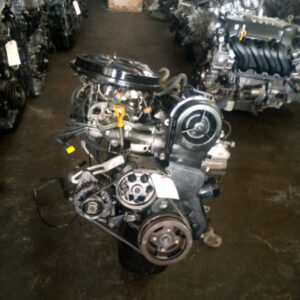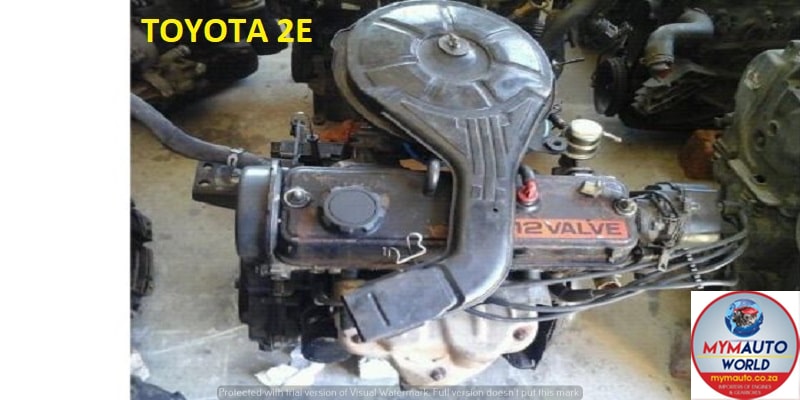Toyota Tazz: A Reliable and Affordable Compact Car for Everyday Use
Toyota Tazz: A Reliable and Affordable Compact Car for Everyday Use
Blog Article
Explore the current Fads in Engine Modern Technology Through Tazz
In the swiftly progressing landscape of automotive technology, Tazz stands at the center, highlighting substantial improvements in engine systems that focus on both technology and sustainability. From hybrid engines that maximize gas effectiveness to the appearance of hydrogen fuel cells, the fads forming modern powertrains are not just enhancing performance yet also attending to critical environmental difficulties.
Crossbreed Engine Innovations
Crossbreed engine technologies represent a pivotal change in automotive innovation, combining the advantages of inner combustion engines with electrical propulsion systems. This combination not only boosts fuel performance however additionally minimizes exhausts, meeting progressively rigid environmental guidelines. By utilizing both power sources, hybrid engines can enhance efficiency, supplying power when needed while conserving gas during less requiring driving conditions.
Current improvements in hybrid innovation consist of improvements in battery effectiveness and regenerative stopping systems. These developments enable greater energy healing throughout deceleration, which can be redirected to aid in acceleration or power auxiliary systems. In addition, manufacturers are focusing on portable styles and light-weight products to make best use of the efficiency of crossbreed powertrains.
The growth of plug-in crossbreeds has actually additionally expanded the market, enabling motorists to charge their lorries using basic electric outlets. This function commonly enables substantial all-electric array, more lowering reliance on typical gas. tazz. As the automotive sector remains to advance, hybrid engine modern technologies are anticipated to play an essential role in bridging the void between traditional lorries and completely electrical models, giving a transitional option that accommodates diverse customer requirements and choices
Advancements in Electric Powertrains
The auto landscape is swiftly advancing, with electrical powertrains becoming a leading force in sustainable transport. Developments in electrical car (EV) technology are considerably enhancing efficiency, effectiveness, and user experience. Trick advancements include renovations in battery chemistry, which have increased power density, minimized charging times, and expanded general battery life.
Solid-state batteries, for instance, guarantee to revolutionize the marketplace by offering better safety and performance compared to typical lithium-ion cells. Additionally, developments in regenerative stopping systems are making it possible for automobiles to recover energy throughout deceleration, adding to overall performance.
Along with battery modern technology, electrical motor designs are becoming extra sophisticated. Developments such as incorporated electric motors and advanced thermal monitoring systems are aiding to optimize power shipment and minimize weight, inevitably enhancing car dynamics.

Collectively, these advances highlight the dedication to change in the direction of cleaner, a lot more effective transportation solutions, placing electrical powertrains at the leading edge of vehicle advancement.
The Increase of Hydrogen Fuel Cells
Significantly, hydrogen gas cells are acquiring traction as a practical alternative to traditional internal burning engines and battery electrical cars. This technology harnesses the chemical power kept in hydrogen, converting it right into power with an electrochemical reaction with oxygen. The key byproduct of this procedure is water, making hydrogen fuel cells an eco-friendly choice with zero exhausts at the tailpipe.

Automakers are significantly investing in hydrogen fuel cell innovation, identifying its possibility for long-range applications and rapid refueling capabilities that match traditional gas. In addition, fields such as heavy-duty transport and public transportation are especially appropriate for hydrogen fuel cells, where battery electrical options might fall short as a result of weight and array limitations.
As research and investment continue to expand, hydrogen fuel cells are poised to play a significant role in the future landscape of clean transportation and energy solutions.
Enhancements in Internal Combustion Engines
Developments in interior combustion engine (ICE) modern More about the author technology are changing typical lorries to fulfill modern-day ecological requirements and performance expectations. One of one of the most substantial improvements includes the combination of sophisticated fuel injection systems. These systems maximize the air-fuel combination, boosting combustion efficiency and resulting in lowered exhausts. Direct fuel shot, for circumstances, enables for much better atomization of fuel, leading to even more total combustion and boosted power outcome.
In addition, turbocharging has obtained importance, allowing smaller sized engines to deliver greater performance without the weight of bigger engines - tazz. This technology not just enhances efficiency yet also adds to lower gas consumption. Variable valve timing systems are also click for source being refined, making it possible for engines to adjust to different driving conditions for improved torque and responsiveness
Additionally, the usage of light-weight products in engine construction is coming to be common, additional boosting gas effectiveness by decreasing total vehicle weight. Engine control systems (ECUs) are progressively innovative, allowing real-time changes that enhance efficiency and emissions.
These enhancements jointly indicate a critical change in ICE modern technology, lining up with global sustainability objectives while still offering the efficiency vehicle drivers anticipate from their cars. As the sector advances, these improvements continue to shape the future of standard auto design.
Future Fads in Engine Efficiency
Significant improvements in engine performance are prepared for as suppliers focus on integrating cutting-edge technologies to satisfy strict ecological guidelines and customer needs. The change in the direction of electrification, crossbreed systems, and different gas is improving the vehicle landscape, driving advancements that boost gas economic climate and minimize discharges.
One of the essential patterns is the execution of innovative materials and making techniques. Lightweight compounds and high-strength alloys contribute to reduced vehicle weight, thus boosting total efficiency. Additionally, the fostering of turbocharging and variable shutoff timing innovations enables for improved power output from smaller sized engines, additionally enhancing fuel economic situation.

Verdict
Finally, the expedition of engine technology exposes significant improvements that prioritize sustainability and effectiveness. Innovations in hybrid engine systems, electrical powertrains, and hydrogen fuel cells demonstrate a dedication to decreasing exhausts while enhancing efficiency. Improvements in interior burning engines and an emphasis on lightweight materials add to total engine efficiency. As the automobile sector proceeds to develop, these patterns will certainly play a crucial function in forming a cleaner and even more lasting future for transport.
From hybrid engines that optimize fuel effectiveness to the introduction of hydrogen gas cells, the fads forming modern-day powertrains are not just boosting efficiency yet additionally resolving critical environmental challenges.Hybrid engine developments represent a critical shift in automotive technology, combining the benefits of inner burning engines with electrical propulsion systems.Furthermore, turbocharging has acquired prominence, allowing smaller engines to supply greater efficiency without the weight of larger engines. Additionally, the adoption of turbocharging and variable shutoff timing modern technologies enables for enhanced power output from smaller sized engines, better improving fuel economy.
Improvements in inner combustion engines and a focus on light-weight products contribute to overall engine performance.
Report this page